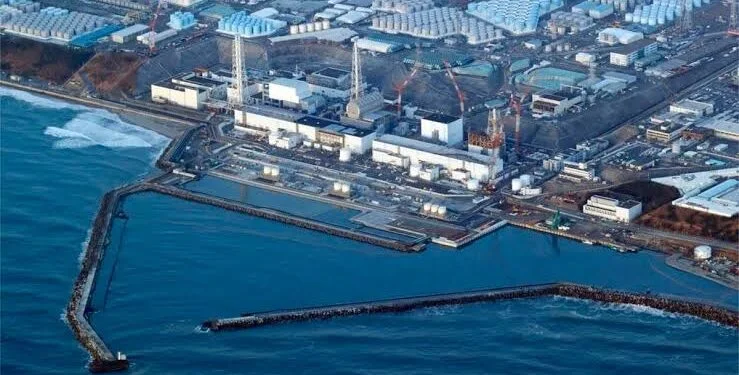Japan on Tuesday announced its intention to commence the release of more than 1 million metric tonnes of treated radioactive water from the damaged Fukushima nuclear power plant.
The release scheduled to commence on August 24, is according to a plan that had been endorsed by the Japanese government two years ago as a vital step in the plant’s decommissioning process.
However, the plan has sparked intense criticism, particularly from China.
The approved plan, which has been seen as crucial for the decommissioning of the Tokyo Electric Power Company (Tepco)-operated plant, has drawn objection not only from international quarters like China but also from local fishing collectives.
The fishing groups are concerned about potential harm to their reputation and livelihood.”
Prime Minister Fumio Kishida stated on Tuesday morning, “I have requested Tepco to make swift preparations for the water discharge as per the Nuclear Regulation Authority’s approved plan. If weather conditions permit, I anticipate the water release to commence on August 24.”
The announcement follows the government’s statement that it had achieved “a degree of understanding” from the fishing industry regarding the water release.
Kishida asserted on Monday, “I assure you that we will take complete responsibility for ensuring the fishing industry’s sustained operation, even if it takes decades.”
Japan has reiterated its assurance of the safety of the water release. The International Atomic Energy Agency (IAEA), a United Nations nuclear watchdog, endorsed the plan in July, affirming its adherence to global standards and its minimal impact on people and the environment.
Nonetheless, some neighboring nations have displayed skepticism towards the plan, with China being the most vociferous critic. In July, China’s foreign ministry spokesperson Wang Wenbin criticized Japan for not adequately consulting the international community and accused it of displaying selfishness and arrogance.
China has imposed a ban on seafood imports from 10 Japanese prefectures, including Fukushima and Tokyo, while imports from other regions require passing radioactivity tests and proof of production outside the restricted areas.
South Korean activists have also voiced their opposition to the plan, even though Seoul’s independent assessment aligns with the IAEA’s evaluation of the water release meeting global standards.
Pacific Island countries have exhibited mixed opinions on the matter, given their own history as nuclear testing sites. Fiji’s Prime Minister, Sitiveni Rabuka, endorsed the IAEA report while acknowledging the issue’s contentious nature in the Pacific Islands.
Kishida stated on Tuesday that he believes “an accurate understanding” of the situation is spreading across the international community.
Japan has clarified that the water will undergo filtration to eliminate most radioactive elements except for tritium, a challenging-to-separate hydrogen isotope. Before being released into the Pacific, the treated water will be diluted to levels well below the internationally approved tritium concentration.
The water had been utilized to cool the fuel rods of Fukushima Daiichi after a catastrophic meltdown caused by a massive tsunami in 2011, which ravaged Japan’s eastern coast.
A Japanese official mentioned that initial test results of seawater post-discharge could be available at the start of September. Additionally, Japan will conduct tests on fish in the vicinity of the plant and provide the results on the agriculture ministry’s website.


Comment here